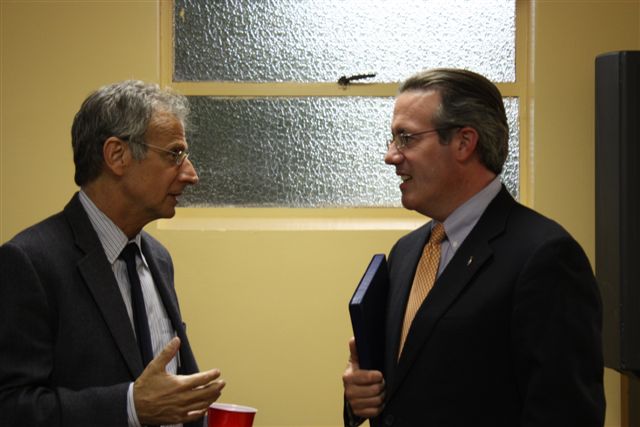
Rabbi James Cohn began his work to stop bias and hate in 1996 when he helped organize faith leaders in Greenville, SC against an anti-gay resolution passed by the town council. In his role as rabbi of Temple Israel in Charleston, WV, Rabbi Cohn continues his work to build inclusion and safe communities through education, community development and committee work. He also serves on the steering committee of OneKanawha, a group in the Not In Our Town network that focuses on creating an inclusive community and working towards social justice in Charleston.
Tell us about your community:
Charleston, WV (“Charlie West”) is a progressive community situated on the banks of the Kanawha River. Rich in history and culture, the people of this valley cherish diversity and respect differences. The area is economically stressed with the departure in past decades of important industries and with inevitable changes facing the coal industry, which is a major economic base. The average age here is increasing as the population trickles downward.
What kind of work do you do in your community?
I am the rabbi of Temple Israel, AKA Congregation B'nai Israel, a Reform (progressive) Jewish congregation established in 1873.
When did you become involved in anti-hate work and why?
I became involved in anti-hate work when I helped organize a group of seven clergy in Greenville, SC, where I lived at the time, in response to a "family values" (anti-gay) resolution passed by the Greenville County Council in 1996. Our effort garnered unexpected support from hundreds of leaders in business, education, and the non-profit community.
What work are you most proud of?
My recognition and application of the wisdom that it is not enough to be committed to basic principles of human rights. It is just as important to be realistic and strategic in building coalitions to give structure to those rights. In other words, "Be principled, but also be smart. And remember that burned bridges have a way of staying burned."
What do you see as the challenges to anti-hate work in your town?
Keeping the rhetoric non-inflammatory in the same breath that we speak the truth. Finding the most unifying elements across diverse populations with different priorities. Most of all: avoiding complacency in the good times; keeping coalitions proactive so we aren't just responding to crises.
What gives you hope?
The basic sense of privacy and justice that can be called upon to unite liberals and conservatives in a shared vision.
What advice would you give to other community leaders who want to address hate and intolerance in their town?
Learn from each other through forums like this one, and through organizations like Not In Our Town.
Images courtesy of Temple Israel and the U.S. Attorney’s Office Southern District of West Virginia.
Add new comment